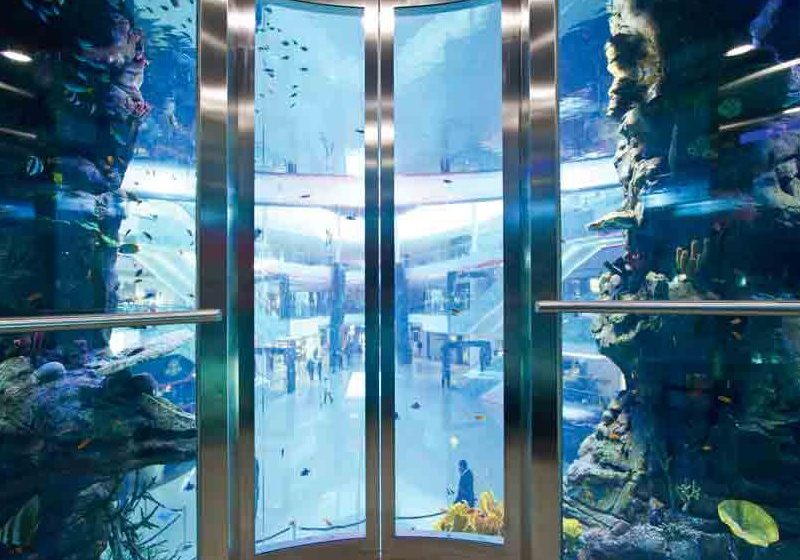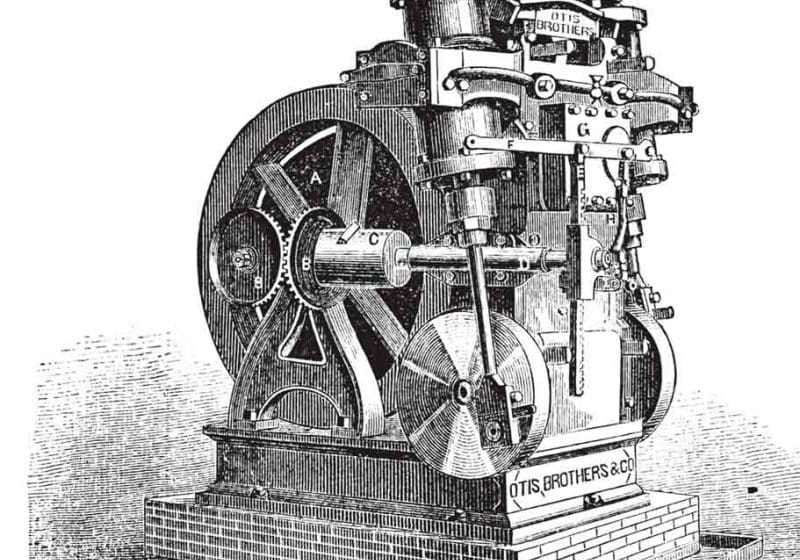Elevator, Escalator Companies During the Global Recession: A Survivor’s Guide
Mar 1, 2012
Company leaders share their thoughts and tips on how to “survive the recession.”
Just as many companies and organizations have done, Elevator World, Inc. recently researched the vertical-transportation industry, specifically pertaining to the global recession’s affect on a number of its segments. After briefly interviewing several industry members, company owners, presidents, directors, etc., Elevator World found that many people share common beliefs on how to “survive the recession,” some of which include – staying involved with customers, re-evaluating one’s position and making improvements wherever possible.
According to Amy DiPaolo, vice president of Hudson Elevator Group and 2011 secretary for the National Association of Elevator Contractors, “It’s important to stay involved in elevator-industry associations and in your customer’s industry associations.” Staying involved can provide companies with a better understanding of their customers, in addition to greater visibility of one’s business path. “Keep up your customer relationships with visits and timely responses. That personal touch will keep customers loyal and make pricing less of a factor,” DiPaolo said. As vice president of a company, DiPaolo has experience in setting good examples for employees: “Simple ‘thank you’s and encouragement go a long way to create a dedicated workforce.”
“Take nothing for granted. Work hard everyday to set a good example for your employees.”
– Amy DiPaolo
Achim Hütter, president of Hütter-Aufzüge GmbH and VFA-Interlift board member, also believes one must stay in tune with customers, “Be alert, see what your customers, markets and/or legislation are requesting, now and in the future.” Hütter suggests companies must stay flexible, as this will help direct business and help employees stay focused. When one stays focused on the task at hand, much can be accomplished. “Take a risk. Sometimes you have to take a risk to evolve into a more successful company,” Hütter said.
With more than 49 years of experience in the elevator industry, Davis “Dave” Turner has owned and operated a consultancy firm for the past 16 years. He, too, suggests customers are among the most important priorities in the elevator industry: “Be honest to your customers. Don’t try to provide services you’re not capable or qualified to provide.” Among the principles that have helped Turner “survive” are: patience, persistence, consistency, control, discipline and professionalism. “Stick to your principles. Don’t waver or bend due to economic conditions, and in the words of Benjamin Franklin, ‘Save for a rainy day,’” Turner said.
“Develop the principles by which you want to operate your business. It doesn’t make any difference what they are, just be consistent with them.”
– Dave Turner
Patrick R. Bothwell, director of Sales for EHC Global, says the company is able to “navigate the global economic turmoil by being strategically placed in the markets in which we do business.” Having office locations across the globe enables EHC to service its customers in their own time zones, contributing to a “high degree of customer satisfaction.” Bothwell also insists being environmentally conscientious and committed to complying with industry codes and standards helps ensure “products are delivered consistently and cost effectively around the world.”
Carmen Maldacena, a native of Argentina, has served as an EW correspondent since 1996. She has traveled around the world and reported on some of the industry’s major projects and events. Maldacena believes, “Companies must be prepared to weather storms…. In the present global situation, I think it is essential to be flexible and quick to adapt to changing issues.” She also believes being creative and efficient can help widen a company’s scope within the industry, which can help a company adapt to the changes it might experience throughout a recession.
According to Randy Richenberger, vice president of Sales-Marketing for Eklund’s, companies can be successful even during times such as the current recession if they implement “continuous process improvements throughout the entire company,” and by providing customers with solutions. In addition, Richenberger insists Eklund’s thinks with a “blue ocean” mentality: “In blue oceans, demand is created rather than fought over. There is ample opportunity for growth that is both profitable and rapid. In blue oceans, competition is irrelevant because the rules of the game are waiting to be set. Blue ocean is an analogy to describe the wider, deeper potential of market space that is not yet explored.”
John Whitfield, director of Whitfield Rose Pty. Ltd., an elevator consultancy in Australia, suggests that companies should, “Provide value added professional services to existing customers.” Whitfield believes when you impress customers they provide positive “free marketing,” for one’s company. “Minimize all financial borrowings and fund expansion and growth from current cash flow where possible. . . . research and invest in the latest technology to improve delivery, ” Whitfield adds.
“Carefully review all potential projects and target those that will provide positive and strategic growth or retention of market presence.”
– John Whitfield
Having been in the elevator industry for many years, Martha Hulgan has survived more than one recession. In fact, “It was during a recession that my husband and I started our company, Elevator Maintenance & Repair,” Hulgan said. She believes recessions offer unique opportunities for “budding entrepreneurs to start a company, because customers (regardless of your trade) are not brand conscious. They are willing to accept products based on quality and affordability, rather than a name they recognize,” Hulgan adds.
As a company owner, Hulgan understands the significance of “good managing.” She believes that good managers use times such as during a recession to re-evaluate their business and determine what brings value and what does not. “During a recession, it is important to avoid risks and stick with what works.” Hulgan suggests that the time prior to the current recession can be referred to as a “fool’s paradise.” “I believe recessions are nature’s way of correcting our mistakes and making us come back to reality,” Hulgan adds.
“A recession is a good time to add new products or services to your company. And, above all, take this time to build your relationships with existing customers.”
– Martha Hulgan
Allison Allgaier, president of Phoenix Modular Elevator, suggests her company is getting through the tough times by incorporating “improvement activities” in their schedules. “When we have a lull in production for part of our crew, we deploy them on improvement activities. They are allowed to work on pet projects that will increase their efficiency or quality,” Allgaier said. Regardless of the type of project, “When they are back in production, we reap the gains from the improvements they made,” Allgaier adds.
Cara Furgiuele, SnapCab project technician and Leadership in Energy and Environmental Design®-registered architect, has not let the recession stop her from utilizing the opportunities the situation has provided. Furgiuele even suggests if companies “take the opportunities open in a production slowdown wisely, [they] can come out of a recession stronger, more streamlined and better able to tackle the increased workload when it’s over.”
According to Furgiuele, the following business procedures have helped SnapCab achieve positive results during the slowdown, and she recommends them to others:
- Evaluate where your company is positioned within the industry and focus on building market presence.
- Adopt new technologies and reorganize your staff to streamline current systems.
- Put time into R&D, implementing new products and improving existing ones, so you can add value, not cut prices.
- Look at current costs and processes with an eye toward better efficiency. Renegotiate costs with vendors, and implement lean manufacturing practices that will shave time and improve production.
- Keep the future in mind when making changes.
Throughout the interviewing process, those who offered their words of wisdom appeared optimistic about the industry’s situation. In a 2011 edition of The Insider[1], which is distributed by the National Elevator Industry Inc., it was reported that there are an estimated one million elevators in operation throughout the U.S. and Canada, with more than 50% being over 20 years old. As a result of these numbers, EW Editor Robert S. Caporale suggests there will be opportunities for various types of elevator companies to make it through the coming years (ELEVATOR WORLD, December 2011). If companies and organizations stay in tune with their customers and association members, maintain a dedicated workforce, implement new products and services, streamline current systems, evaluate their positions and consider the future when making changes, they will stay on the right path, say many of the industry’s experts. According to Furgiuele, “Recessions are a temporary challenge that can lead to permanent progress”.
Reference
[1] The Insider is a bimonthly e-mail newsletter distributed by the National Elevator Industry, Inc. and is available at website: www.neii.org.
Get more of Elevator World. Sign up for our free e-newsletter.






